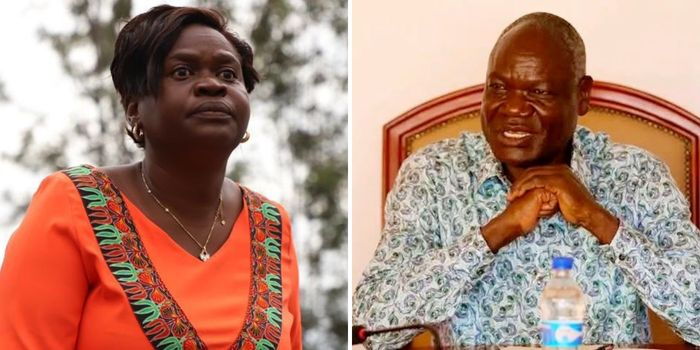Rédaction Africa Links 24 with khaliil
Published on 2024-04-07 14:23:47
Somalia has been in the process of rewriting its Constitution since the beginning of February, with the aim of creating a document that outlines the basic principles and laws governing the government and its citizens. This exercise has been long overdue but was delayed due to weak state institutions and security challenges posed by groups like Al Shabaab.
Recently, the bicameral parliament passed amendments to several articles in the first four chapters of the provisional constitution of 2012. However, this move has resulted in further divisions rather than unity. Puntland, one of the oldest semi-autonomous federal states in Somalia, rejected the reviewed constitution, stating that it violated the federal pact that historically unified the country. Puntland’s President Said Abdullahi Deni even decided to suspend its membership in the Federal government along with four other federal states.
Former Prime Ministers Omar Abdirashid Sharmarke and Hassan Ali Khayre, as well as legislator Abdirahman Abdishakur, also opposed the proposed constitutional amendments. The debate in Somalia revolves around whether to adopt a multiparty democracy or a three-party system, as well as the extent of powers the executive branch should possess.
President Hassan Sheikh Mohamud signed the amendments passed by parliament into law, changing the political system to a presidential one where the President will be elected by popular vote and have the authority to appoint and dismiss the Prime Minister. This marks a significant shift from the current indirect election system where the President is chosen by legislators through clan-based voting.
The changes to the constitution are facing opposition from former Somali presidents, prime ministers, legislators, and Puntland State, highlighting the lack of consensus on the review process. The original constitution was adopted in 2012 after the Somali Reconciliation Conference and laid out a federal government structure with a multiparty democracy and parliamentary system of government.
The debate over governance system in Somalia dates back to its earlier republics, with different forms of government being implemented over the years. Some argue in favor of a parliamentary system, citing its ease and democratic nature, while others support a presidential system for its clear executive powers.
Moving forward, Somalia will need to address the challenges of implementing a new governance system amid the lack of strong political parties and heavy reliance on clan-based influences in decision-making. The role of the Prime Minister will also be crucial in balancing the powers of the executive branch and ensuring effective governance.
Overall, the process of rewriting the Constitution in Somalia is complex and requires careful consideration of the country’s history, political dynamics, and aspirations for the future. It remains to be seen how the different political actors will navigate these challenges and reach a consensus on the way forward.
Read the original article on Wardheer News



